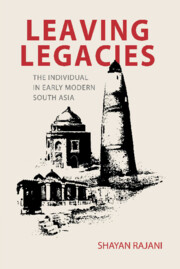4 - Pious Bodies
Published online by Cambridge University Press: 28 November 2024
Summary
A new kind of book emerged in Sindh at the beginning of the eighteenth century. Written by Islamic scholars, it contained Sindhi verse in the Arabic or modified Arabic script. The latter script, which first appeared in these books, would later become the standard for writing modern Sindhi. These early authors translated Islamic law of the Sunni Hanafi variety from Arabic into simple rhyming Sindhi verse. In particular, they described the law on obligatory ritual performance such as ablutions and prayers, fasting, and animal sacrifice and slaughter. This genre had already existed as oral performance in the form of preaching and sermonizing in seventeenth-century Sindh. Its appearance as a book broke a century-long, sustained focus on Persian-language book writing. It marked an important watershed in the history of Sindhi literature, inaugurating a textual tradition in Sindhi that, over the course of the eighteenth century, grew to include Sufi and court poetry, along with prose as well.
This book signaled a transformation in the early modern self and the practice of leaving legacies. Before, Sindhi verse was performed for elite literary gatherings and other audiences, recited in Sufi khanaqahs as part of ecstatic practice, and sometimes abstracted in Persian prose. It was not written as book manuscripts to represent the work and legacy of an individual. The previous chapters have shown that Persian was the language of individual self-representation in the form of books and epigraphy for men associated with Mughal officialdom. Even written memorialization of Sufi saints at this time occurred in Persian and emphasized the saint's facility in elite languages. Qazi Qadan (1463–1551), the earliest Sufi known to have composed Sindhi verse, was remembered in Masum's The History of Sindh (1600–01) for his command over Arabic-language knowledge of Quranic commentaries and Prophetic hadith and Persian-language knowledge of letter-writing and accounting. Masum made no mention of Qazi Qadan's Sindhi verse. In fact, the most extensive collection of his Sindhi poetry is preserved in a Dadupanthi anthology of bhakti saints. Similarly, Shah Karim of Bulri (1538–1622/23), another Sufi saint known today as an early Sindhi poet, has no contemporary manuscript of Sindhi verse.
- Type
- Chapter
- Information
- Leaving LegaciesThe Individual in Early Modern South Asia, pp. 115 - 141Publisher: Cambridge University PressPrint publication year: 2025

